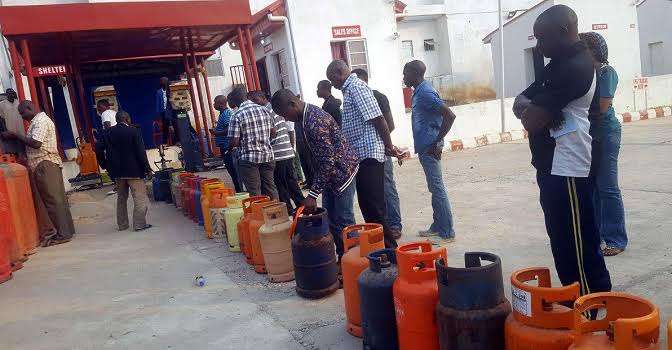
“Nigerian Medications Are Losing Their Potency!!!” – Actress Mary Remmy Njoku Raises Alarm After Food Poisoning Scare

Nollywood actress and filmmaker Mary Remmy Njoku has stirred nationwide concern after taking to social media to call out what she described as the alarming inefficacy of medications being sold across Nigeria. The actress, who shared her disturbing experience with food poisoning and the subsequent failure of a commonly used anti-diarrheal medication, warned that Nigerians may be buying drugs that no longer work—and that this could be costing lives.
In a candid and emotional post on her verified Instagram account, Njoku recounted a recent episode that left her both physically ill and deeply unsettled. According to her, while filming on set, she suffered from a bout of food poisoning and quickly sought relief from one of Nigeria’s most popular pharmacy chains. A staff member was sent to purchase Imodium, a widely known anti-diarrheal medication, which she said she had used in the past with great results.
However, this time was different.
Despite taking the medication for three days straight, Njoku said her symptoms persisted with no sign of improvement. “The symptoms didn’t stop,” she lamented, noting her growing frustration and discomfort. Then came a turning point that would leave her both shocked and outraged. Her husband, who had just returned from a trip abroad, gave her a single Imodium tablet—this time, sourced outside Nigeria. Within five minutes of taking it, Njoku said her stomach calmed completely.
The dramatic difference in effectiveness left her with serious questions about the quality and authenticity of the drugs being sold within Nigeria’s borders. “What exactly are we being sold in Nigeria?” she asked. “What’s going on with our drugs?”
In a sharp appeal to the National Agency for Food and Drug Administration and Control (NAFDAC), Njoku demanded answers and action. Tagging the agency’s official Instagram handle, she pleaded, “NAFDAC HELP!!” Her message quickly gained traction, sparking widespread reactions from followers, industry colleagues, and the general public, many of whom shared similar stories of ineffective medications and suspected counterfeit drugs.
“This isn’t my first time noticing this kind of difference between locally and imported drugs sold in Nigeria,” Njoku added. “This is a public health risk and @nafdac_ng must take it seriously. This is dangerous!”
Her outcry has thrown a spotlight on an issue that many Nigerians have whispered about for years: the growing fear that the country’s pharmaceutical market is being flooded with substandard, fake, or improperly stored drugs that have lost their efficacy by the time they reach the consumer. With rising reports of treatment failures, complications from common illnesses, and even avoidable deaths, Njoku’s post is being seen as a much-needed call for accountability.
In the hours following her revelation, social media platforms were awash with comments echoing her concerns. Users from different parts of the country recounted personal experiences—some harrowing—of medications that simply didn’t work, even after completing full dosages. “This explains why my malaria keeps coming back even after taking proper treatment,” one user wrote. “We’re buying chalk in capsules,” another added bitterly.
Health experts have long warned of the dangers posed by counterfeit and substandard medications in Nigeria. A 2022 World Health Organization report listed sub-Saharan Africa as one of the regions most affected by poor-quality medicines, with Nigeria being one of the hardest hit. The report cited factors such as weak regulation, porous borders, lack of proper storage facilities, and corruption as major contributors to the crisis.
NAFDAC, the agency responsible for regulating and controlling the manufacture, importation, exportation, distribution, advertisement, sale, and use of food, drugs, cosmetics, medical devices, and chemicals in Nigeria, has previously launched campaigns against fake and substandard drugs. Yet, for many Nigerians, these efforts have not translated into visible change on the ground. The agency is now under renewed pressure to act swiftly and decisively.
Reacting to the viral post, several public health advocates have urged NAFDAC to immediately investigate not only the specific Imodium batch in question but also conduct a nationwide audit of pharmacy chains and importation channels. They argue that drug integrity should not depend on privilege or access to foreign alternatives, and that millions of ordinary Nigerians are at risk daily.
Njoku’s testimony also raises uncomfortable questions about the broader health infrastructure in Nigeria. If trusted medications can no longer be relied upon, what does that mean for the nation’s fight against more serious diseases like tuberculosis, HIV/AIDS, cancer, and other chronic conditions? The implications are chilling.
This isn’t the first time a public figure has used their platform to highlight systemic health challenges, but Mary Remmy Njoku’s bold statement may prove to be one of the most impactful. With over a million followers and significant influence both within Nollywood and the broader public, her voice is impossible to ignore.
Medical professionals are also weighing in. Dr. Bayo Adebisi, a Lagos-based physician, told reporters that the disparity between local and imported medications is something he has observed repeatedly. “We see cases where patients do not respond to locally purchased drugs, but then improve once given the same medication sourced abroad,” he said. “It’s heartbreaking, because not everyone can afford that alternative.”
Pharmacists across the country are also facing growing scrutiny. There are concerns that even reputable pharmacy chains may unknowingly be selling compromised products due to supply chain lapses, improper handling, or corrupt wholesalers. Calls are growing louder for regulatory bodies to tighten inspection protocols, enforce stricter penalties, and revamp drug verification systems.
In the meantime, Njoku’s plea continues to reverberate through the public consciousness. It is a raw, unfiltered cry for safety and accountability in a system where trust is fast eroding. Her experience may have started with a personal health scare, but it has quickly evolved into a national conversation about life, death, and the silent threats hidden in medicine cabinets across Nigeria.
As Nigerians await an official response from NAFDAC, one thing is clear: the people are watching, and they are demanding answers. The time for silence has passed.


